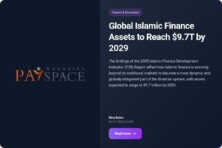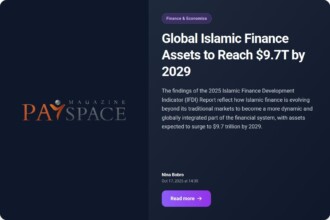An analyst at Fitch Ratings warned that the US banking sector is currently on the way to a new downgrade, which could potentially affect dozens of lenders, including industry giants such as JPMorgan Chase.

In June, the rating agency revised its assessment of the state of financial institutions in the United States downwards. Chris Wolfe, an analyst at this organization, noted that the change in the perception of the state of affairs in the banking sphere did not become subjects of public discussion and did not cause any significant resonance in the information, since it did not entail a reduction in the rating of creditors. At the same time, during a conversation with journalists, he said that another change in the rating of the industry to A+ from AA – for Fitch will be an unambiguous reason for certain actions. This means that the agency will review the ratings of more than 70 banks.
According to Chris Wolfe, changing the rating to A+ would correct all of Fitch’s financial indicators. In the case of this scenario, the agency will be forced to perform, according to the analyst, negative rating actions.
Recently, the decisions of organizations like Fitch, whose valuations are a benchmark for investors, have been exciting the market. For example, last week Moody’s downgraded the ratings of several small and medium-sized banks. The company also announced that in the near future, the assessment of the condition of 17 more lenders, including such large financial institutions as Truist and U.S. Bank, may be revised in the direction of deterioration.
At the beginning of August, Fitch downgraded the long-term credit rating of the United States. The agency explained its decision by the fact that currently there are such factors of a negative influence as political dysfunction and a significant debt burden, demonstrating growth dynamics without prospects for changing the vector of movement of the indicator in the near future. Some business leaders did not agree with this point of view, considering it unreasonable and irrelevant to reality. For example, JPMorgan CEO Jamie Dimon does not believe that the downgrade is a reflection of financial and economic realities.
Chris Wolfe says that currently, the agency plans to inform the market that the downgrade of creditors’ ratings is not a resolved issue, which remains only to be publicly stated, but the corresponding risk still exists and belongs to the category of obvious facts.
In June, Fitch downgraded its assessment of the operating environment in the banking industry to AA- from AA. Then the agency stated that this decision was due to several factors. In this case, analysts said that the sovereign rating of the United States is under pressure. The agency also drew attention to such negative circumstances as gaps in the regulatory framework and structural uncertainty regarding the further concept of monetary policy. Fitch noted that the dynamics of interest rates have a vector that is the opposite of the direction of movement that has been fixed over the past 40 years and was a decline in the indicator on a long-term basis. The agency predicts that American financial institutions will operate in conditions of high rates for a long period, which forms a kind of hotbed of pressure on deposits.
The probability of an A+ rating signals a possible problem, which, if the appropriate scenario for the development of the situation in the banking sector is implemented, will lead to the fact that the overall rating of the industry will be lower than the same indicator of some lenders. If this state of affairs eventually becomes reality, the two banking giants JPMorgan and Bank of America will have an A+ rating instead of AA- due to the fact that the assessment of the state of individual financial institutions cannot be higher than the assessment of the environment in which they operate.
Chris Wolfe says that in the situation of downgrading the rating of the largest lenders, banks with less capital and a smaller scale of business may remain below the investment level. This is an extremely negative scenario, but this is the current version of economic reality.
Last Tuesday, August 15, the stock price of JPMorgan, Bank of America, and Citigroup showed a decline against the background of a general market decline. The negative dynamic of KBW was also recorded.
Miami Lakes, Florida-based bank United, at the BBB level, has already reached the lower limit, beyond which interaction with investors who prefer not to cooperate with financial institutions with a such rating ceases.
Chris Wolfe says that he has no intention to speculate on the timing of a potentially possible rating change and the impact of this decision on companies in a difficult situation. He admitted that the rating of some banks is already at the BBB level and may remain in the event of a change in the assessments of other lenders.
When revaluing the state of financial institutions, Fitch will focus primarily on the vector of interest rate dynamics, which is determined by the Federal Reserve System. Some experts say that rates will decrease next year, believing that their current level is the peak. But this is just an assumption, not confirmed at the official level. If the policy of raising rates continues, the profit margin of the banking sector will be under pressure.
Chris Wolfe said it is likely that defaults on loans to the industry will exceed the level of losses that the agency considers historically normal.









